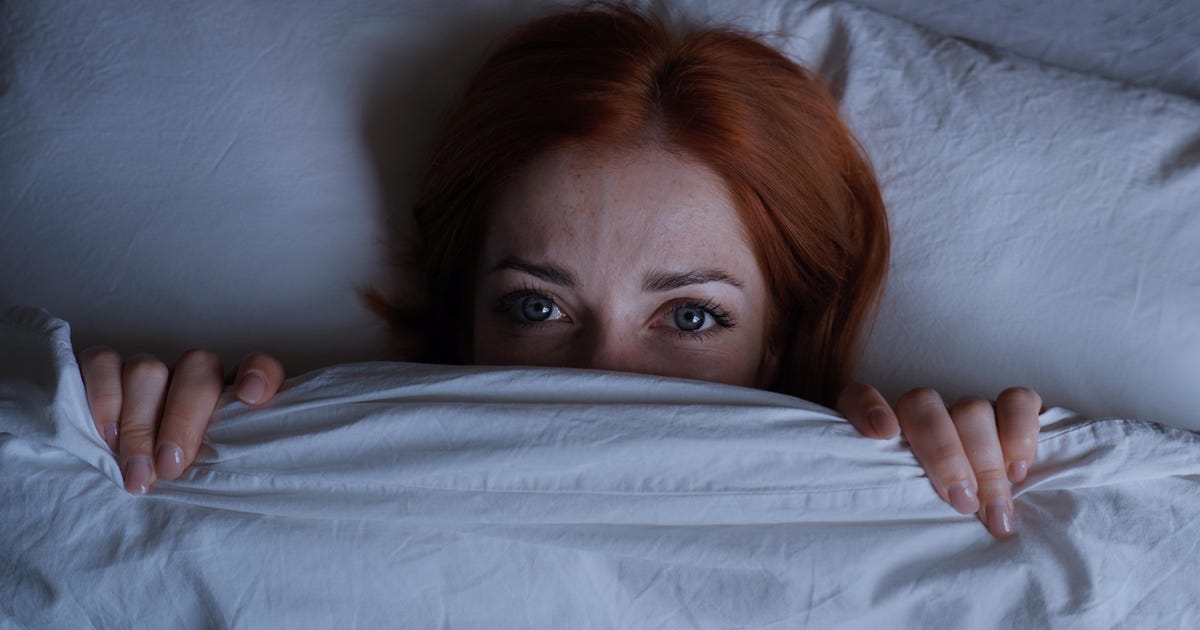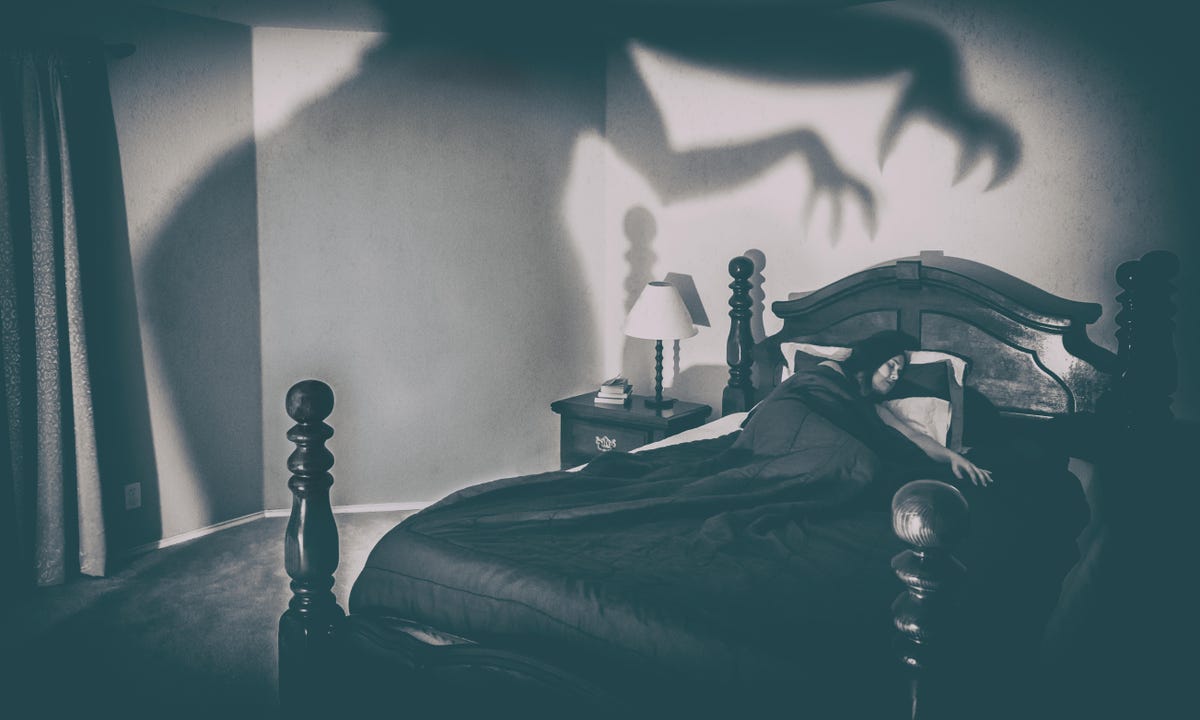Are you afraid of the dark movie are you afraid of the dark wiki are you afraid of the dark movie are you afraid of the dark season 2 are you afraid of the dark netflix are you afraid of the dark season 2 are you afraid of the dark curse of the shadows

Are You Afraid of the Dark? What's Not Normal, Why It Happens and How to Treat It
When I was young, like many children, I was afraid of the dark. I refused to let my parents close the bedroom door, lest I be plunged into complete darkness. The closet couldn't be opened at all: My mind would imagine something was watching me from its depths. I would beg my parents to leave the hall light on until I fell asleep. (I've since gained an understanding of how electricity bills work, which is arguably more frightening.)
Being afraid of the dark is often associated with childhood, mostly occurring in children ages 6 to 12, according to the Cleveland Clinic. But it's not uncommon for the issue to continue into adulthood. Even though my mind has put many darkness-related fears to rest, there remain moments when I'm in complete darkness that I feel a pang of anxiety.
But if it's not uncommon, when does a normal fear of the dark become a larger problem? Why are we afraid of the dark at all? Can you get over your fear of the dark? Here's everything you need to know.
Is it normal for adults to be afraid of the dark?
According to E-conolight, a company that specializes in LED lights, nearly 50% of respondents surveyed in 2020 said they're afraid of the dark as adults.
Like many anxieties, if your fear starts to interfere with daily life, it should be examined more closely. According to CNET's sister site Healthline, nyctophobia is an extreme or irrational fear of the dark or night.

Fear of the dark and insomnia often go hand in hand.
Basak Gurbuz Derman/Getty ImagesPeople with nyctophobia can be triggered by being in the dark or imagining being in the dark. These triggers can set off symptoms that manifest physically and emotionally. A person with nyctophobia may exhibit symptoms akin to panic attacks, like trouble breathing, chest tightness, shaking or trembling, as well as an intense need to escape the situation, detachment from self and feeling powerless over your fear.
A person with a normal fear of the dark may feel uneasy in dark space or feel a bit anxious at night. A person with nyctophobia may lose sleep or adjust their daily routine to avoid dark places (like forgoing a trip to the movie theater). According to the Cleveland Clinic, nyctophobia and insomnia are intertwined: People who have trouble sleeping can also subsequently develop nyctophobia. Those with nyctophobia may sleep with the lights on to abate their fears, but this can make sleep difficult.
Why are people afraid of the dark?
A person can be afraid of the dark for many reasons. For me (and likely many others), I notice an increase in anxiety in dark places after consuming spooky media before bedtime. Over the years, researchers have proposed more scientific theories and potential explanations.

Often, it's not the dark itself that's frightening... but the fear of what might be hidden in the dark.
Lotus Carroll/EyeEm/Getty ImagesBeing afraid of the dark may harken back to the earliest days of humankind, according to a CNN report. Our ancestors quickly adopted a big rule for survival: The dark provides cover for dangerous predators on the prowl, so it must be avoided.
Basically, it's less likely that you're afraid of the dark itself. Instead, you may fear the unknown and unseen.
"In the dark, our visual sense vanishes, and we are unable to detect who or what is around us. We rely on our visual system to help protect us from harm," Martin Antony, professor of psychology at Ryerson University in Toronto, said in the report.
Stressful or traumatic events, genetics or children being around anxious or overprotective caregivers can increase the risk of being scared of the dark.
Are there treatments for fear of the dark?
If your anxieties or negative feelings about being in darkness have been unmanageable for six months or more, you may want to look at treatment options. Cognitive therapy can help you understand the root of your anxieties and how they relate to your fear of the dark. Therapy can also help train your mind to seek more positive or logical solutions in times of panic, as well as help abate any shame you may feel about being afraid of the dark.
Healthline also suggested exposure therapy, which involves exposing yourself to the dark repeatedly until it no longer activates a fear response. In 2020, several studies around exposure therapy — especially in vivo exposure, or facing your fear in real life — showed that 80% to 90% of participants responded positively.
For less extreme cases, you can try relaxation techniques or meditation. Deep breathing and mindfulness may help you manage the physical anxiety symptoms. If you think you or your child has nyctophobia, contact a doctor or psychologist to discuss options.
The information contained in this article is for educational and informational purposes only and is not intended as health or medical advice. Always consult a physician or other qualified health provider regarding any questions you may have about a medical condition or health objectives.
Source
Blog Archive
-
▼
2023
(68)
-
▼
January
(49)
- Samsung's QD-OLED TV Might Be Here Very Soon. Here...
- Scientists X-ray Letters Between Marie Antoinette ...
- Perinatal Depression: What It Is And How To Cope
- How To Do A Clean Install Of Windows 10
- IPadOS 16 Hands-On: Monitor Multitasking Takes Ste...
- Manna's 5G Drone Delivery Deal Will Help You Track...
- IOS 16: How To View Saved Wi-Fi Passwords On Your ...
- The Benefits Of Crying And Why It's Good For Your ...
- Are You Afraid Of The Dark? What's Not Normal, Why...
- 8 Ways To Protect Your Money During A Recession
- Tesla Apple CarPlay Hack Claims To Work On Any Tes...
- Find Out What Your Name Means, According To Urban ...
- Microsoft May Not Launch Windows 10X After All
- Over $3M Has Been Spent On GameStop's NFT Marketplace
- Marvel's 'Doctor Strange 2' Global Review: 'Vaguel...
- Google ChromeOS Flex Is Now Ready To Run Your Old ...
- IOS 16: How To View Saved Wi-Fi Passwords On Your ...
- LG's 2022 OLED TVs Now Available, Starting At $1,4...
- Lenovo ThinkPad X1 Titanium Yoga Review: A First-c...
- Best OLED Laptop Deals: Save $500 On An HP Spectre...
- Transform Your IPad Pro And Save Up To $144 With A...
- Amazon's One-Day Apple Watch Deal Slashes $49 Off ...
- 10 Road Trip Essentials For Summer Travel
- Alex Jones Sandy Hook Trial: Jury Finds Jones Must...
- Best Store Credit Cards
- Razer Book 13 Review: Great Little Work Laptop Wit...
- Facebook Overpaid FTC Fine By Billions To Shield Z...
- WWE WrestleMania 36 Day 1: Results, Insane Ending,...
- Gamescom Opening Night Live: How To Watch Online, ...
- This Snapchat Filter Can Help You Learn American S...
- Apple's M2 Chip Gives New MacBook Air A Speed Boost
- Facebook, Messenger, Instagram And WhatsApp Users ...
- 2020 Honda Gold Wing DCT First Ride Review: 'Wing ...
- NFL Preseason Week 3: How To Watch Jaguars Vs. Fal...
- Refurbished IPads Are Available At Steep Discounts...
- Google Delivers Big Update To Password Manager For...
- IPad Keyboards Are On Sale Starting As Low As $90 ...
- Apple's IPad And M1 Mac Sales May Tell Us Whether ...
- Get $20 Off This Already Discounted OBD2 Bluetooth...
- Here's The Best Way To Start A Side Hustle And Mak...
- Cars With Driver-Assist Tech Involved In 100s Of C...
- Android Malware Tries To Trick You. Here's How To ...
- Best USB-C Monitor Deals: Get A 24-Inch FHD Displa...
- Try This Easy Hack To Safely Clean Oven Grease Fro...
- LG's First UltraGear Gaming Laptop Pairs 11th-gen ...
- Should You Buy Kitchen And Home Essentials On Prim...
- Ted Lasso Fan Edit Turns The Show Into A Horror Movie
- Samsung's Display Chief To Kick Off CES 2022 With ...
- Here's How To Download Spotify Playlists And Songs...
-
▼
January
(49)
Total Pageviews
Search This Blog
Popular Posts
-
Surat rasmi, surat rasmi contoh, surat rasmi pkp, surat rasmi spm, surat rasmi 2018, surat rasmi 2019, surat rasmi lhdn, surat rasmi cuti, s...
-
Huawei honor spin off huawei honor spin off is honor owned by huawei huawei sales in usa huawei singapore huawei sell honor huawei stealing ...
-
Best at amp t phones of 2022 apple samsung and more compared definition best at amp t phones of 2022 apple samsung 1tb best at amp t phones ...
